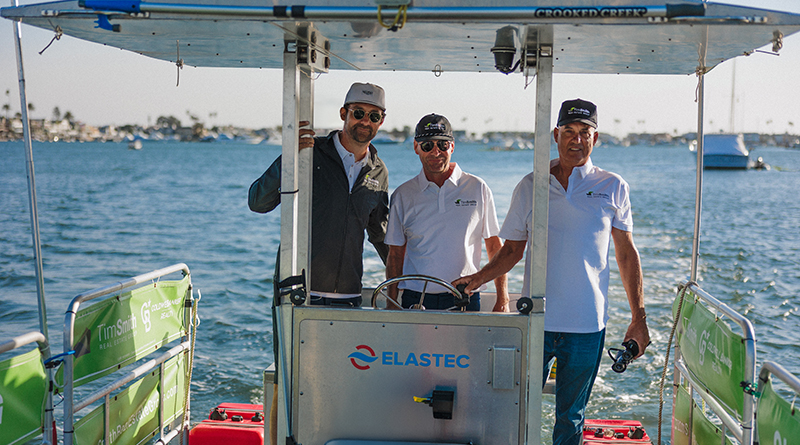Question:
“What is the legal obligation of a marina when a lender seeks to do a ‘friendly repo’ from a marina?”
Answer
This question came to us from a reader who provided no context for his “friendly repo.” Is our reader a boat owner concerned about a pending repossession of his boat? Or a lender? Or maybe he is a marina manager trying to avoid getting into the middle of a conflict? We can probably assume that when he asks about a marina’s “legal obligation” is actually asking whether the marina needs to cooperate with the person or persons performing the repossession.
The answer to the question about a “legal obligation” may differ depending on a lot of variables, starting with the role, or identity, of the person asking the question. Regular readers of this column are familiar with the warning that I include with every installment, noting that every legal scenario is different, and I’m unable to provide solid legal advice without all of the facts. In this case, our reader has not given us much to work with, but we can still take a look at some general principles.
Regardless of the role that our reader is playing in this case, the first step in answering his question is to ask him to explain what he means by a “friendly repo.” We need to know this, because the only actual “friendly repo” is a voluntary repossession, where the boat owner voluntarily surrenders the boat to his lender. In that case, there is no reason for any involvement by the marina. The boat owner simply allows the lender’s representative to come and pick up the boat.
Now, let’s assume that our reader is not facing a “friendly repo.” We still need to know the type of repossession he is facing before we can answer his question about the marina’s legal obligation.
When a boat loan is in default and the lender needs to repossess a boat, it must start by selecting from two separate procedures: One procedure pursuant to relatively economical state law guidelines, and the other under a much more expensive federal law procedure. The choice is often — but not always — made based on two aspects of the case: First, whether the lender is dealing with a loan on a state-registered (DMV-registered) boat, or does it have a preferred ship mortgage securing a loan on a boat that is documented with the U.S. Coast Guard? And next, whether the value of the boat and the amount of the loan justify using the more expensive federal procedure. Let’s start by looking at the federal procedure.
A foreclosure of a defaulted ship mortgage under federal rules calls for a lawsuit to be filed in federal court, and the vessel is then taken into custody, or “arrested,” by U.S. Marshals, pursuant to a warrant issued by the court. The procedure is very effective but it is also very expensive.
A 1996 Federal Appellate Court case (Dietrich v. Key Bank) held that a “private” repossession may be initiated to enforce a preferred ship mortgage under state law and without involving the marshals or the federal court, as long as the mortgage includes language that authorizes a foreclosure without judicial process, and the requirements under state law for repossession and sale of personal property are followed.
In California, the procedure is governed by Article 9 of the California Commercial Code, which concerns security interests taken against any form of personal property, and by the agreements between the parties (usually a note and a mortgage or security agreement).
A repossession of a state-registered boat in California will be governed by the California Boaters Lien Law, which is set forth in Article 4 of the California Harbors and Navigation Code. The rules for a repossessing lender under the Boaters Lien Law are similar to the rules that govern the repossession of a car, and commercial lenders will always assign a repossession to a licensed repo agency to ensure compliance with these rules. In California, the Department of Consumer Affairs must license a repo agency. Private party lenders may repossess a boat themselves, but they should resist the temptation to do so. A repossession is subject to a list of regulations that are designed to protect the legal rights of all parties and to avoid a violent confrontation. A licensed repo agency understands those rules and will keep the lender out of trouble.
Whether dealing with a state-registered boat or a Coast Guard documented vessel, a lender will save a lot of money under state-law procedures for repossession. The lender may nonetheless wish to use the federal court procedure because it is performed with the participation and oversight of a federal judge, and the actual repossession is performed by a U.S. Marshal pursuant to a warrant of civil arrest and a court order. The judge is involved at every step of the way, and questions involving the disposition of personal property aboard the boat, claims by competing creditors, or whether the vessel was ultimately sold at a fair price are quickly and conclusively resolved by the judge. The marshal has a badge and a gun, and as such any possibility of a confrontation with the boat owner at the time of the repossession is minimized.
This takes us back to our reader’s question regarding the legal obligations of a marina during a repossession.
A marina is usually located on and adjacent to private property, and marina operators have the right to control access onto their property. They are under no obligation to cooperate with a repo agent and they may, if they wish, prohibit entry onto their property by repo agents. Not so with a U.S. Marshal. As noted above, a marshal will conduct the “civil arrest” of a vessel pursuant to the order of a federal judge, and the order usually includes language that authorizes them to enter onto private property for the limited purpose of retrieving the vessel. And, as also noted above, a marshal will arrive equipped with a gun and a badge. The marina manager has a right to review the court order, but that’s about all they can do. They don’t need to actively cooperate with a marshal, but they are prohibited from interfering with the arrest.
As you may imagine, the procedures under both state and federal law are much more complex than we have the time or column inches. The claims and defenses that surround a repossessed boat, and the obligations of a marina operator, will vary a lot from case to case, so you should talk to an experienced maritime lawyer before making any assumptions about your own case.
David Weil is licensed to practice law in the state of California and as such, some of the information provided in this column may not be applicable in a jurisdiction outside of California. Please note also that no two legal situations are alike, and it is impossible to provide accurate legal advice without knowing all the facts of a particular situation. Therefore, the information provided in this column should not be regarded as individual legal advice, and readers should not act upon this information without seeking the opinion of an attorney in their home state.
David Weil is the managing attorney at Weil & Associates (www.weilmaritime.com) in Seal Beach. He is certified as a Specialist in Admiralty and Maritime Law by the State Bar of California Board of Legal Specialization and a “Proctor in Admiralty” Member of the Maritime Law Association of the United States, an adjunct professor of Admiralty Law, and former legal counsel to the California Yacht Brokers Association. If you have a maritime law question for Weil, he can be contacted at 562-799-5508, through his website at www.weilmaritime.com, or via email at [email protected].







